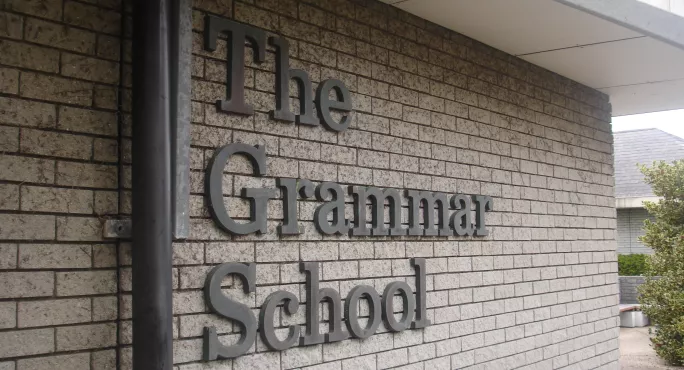Pupils from the ‘just about managing’ families that Theresa May put at the centre of the government’s agenda are “significantly under-represented” in grammar schools, according to new research.
Today’s report from the Sutton Trust, ‘Gaps in Grammar’, also finds disadvantaged white British children enter selective schools at the lowest rate of all major ethnic groups.
The conclusions come three days before the end of a consultation on controversial plans to increase academic selection in English schools, which the government says will benefit children from lower income backgrounds.
Sir Peter Lampl, chairman of the Sutton Trust, said: “We can see that those from families who the prime minister is concerned about are ‘just about managing’ [Jams] are much less likely to gain a place than their better-off classmates.
“Today’s research raises concerns about the government’s plans to use new grammars as a vehicle for social mobility. We need to get existing grammars moving in the right direction before we consider expanding their number.”
But the Department for Education claims its plans will address the issues raised in the report, ensuring that selective schools prioritise low income children.
There is currently no official definition of the ‘Jams’, so the Sutton Trust report uses data about income deprivation as a proxy, and compares grammar school entry rates from the most deprived to least deprived fifths of neighbourhoods.
It finds that, outside London, children in the second most deprived category have more families in work than the most disadvantaged but fare little better in getting into grammars.
“This is a strong indication that the ‘just managing’ families are not being catered for by the current grammar school system,” it concludes.
It also says disadvantaged Indian pupils are four times more likely to enter grammar schools than disadvantaged white British pupils, while the figure for disadvantaged Chinese children was 15 times higher. The figure for poorer black pupils had improved, but remained low.
The briefing says that while raw exam results exaggerate grammar schools’ success, “the balance of evidence” suggested they have a “small positive effect” on pupils attending them, including disadvantaged pupils.
However, it also cites evidence that the performance of children in non-selective schools is harmed in areas with the highest number of grammar schools.
A Department for Education spokesperson said: “The Sutton Trust itself has highlighted the positive impact grammar schools can have on pupils from less well-off backgrounds and that’s exactly why we want more young people to benefit.
“Our proposals will address the issues highlighted in the report - creating more good school places in more communities and ensuring new and existing selective schools prioritise the admission of lower income pupils and support other schools to help drive up academic standards across the system.
“Thanks to the government’s reforms, almost 1.8 million more children are in schools that are rated good or outstanding than in 2010, but we are determined to go further so that all children, whatever their background, can go as far as their talents will take them.”
Want to keep up with the latest education news and opinion? Follow TES on Twitter and like TES on Facebook




